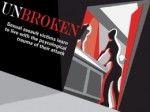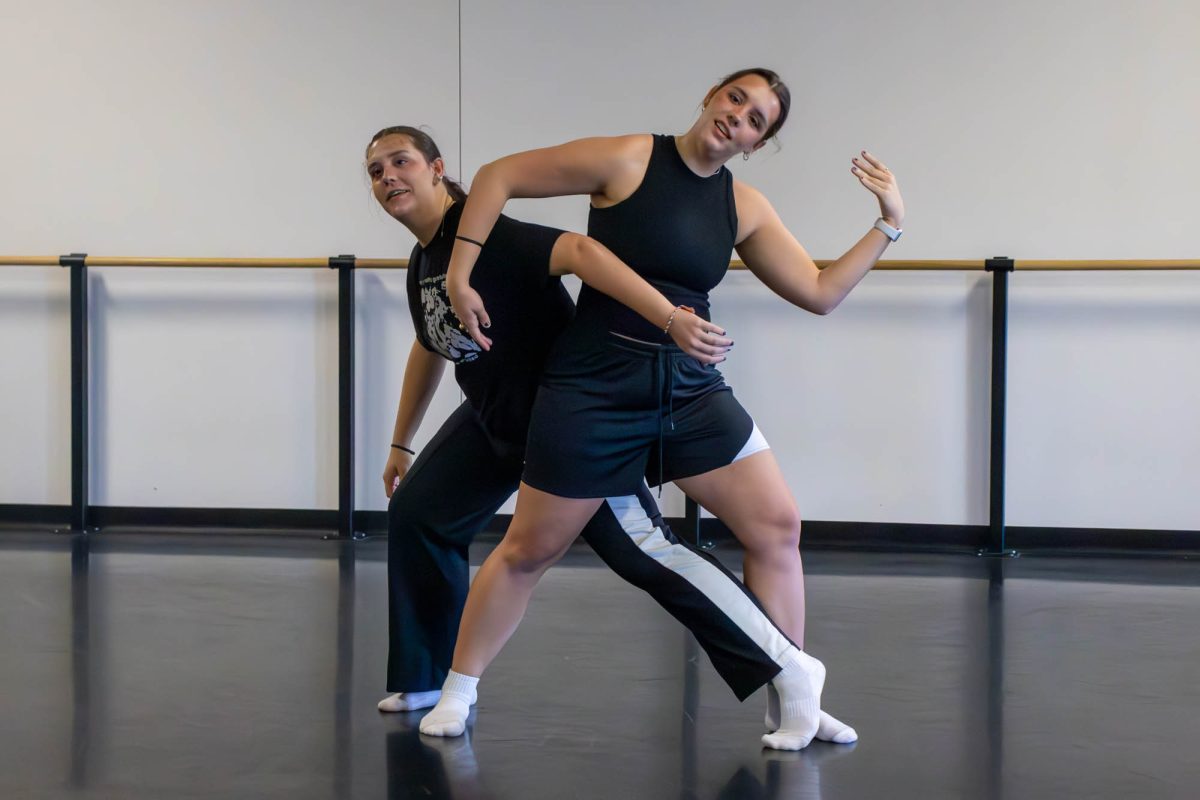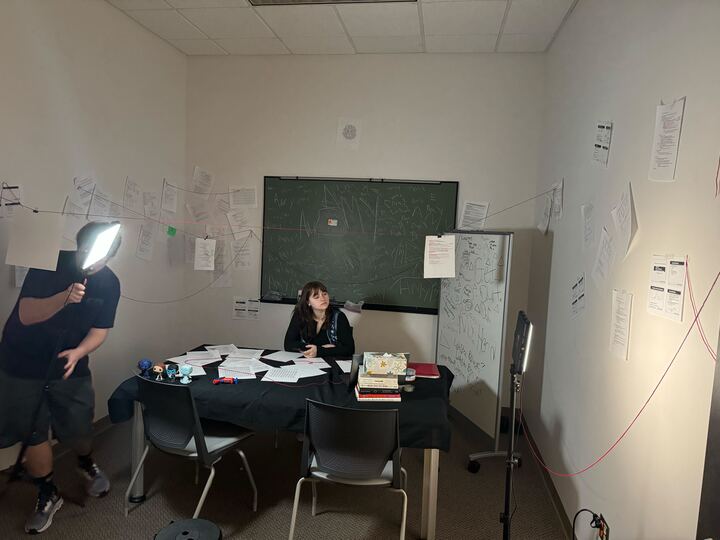You’re a slut.
The words sting, but don’t match the physical pain that follows as Ashley’s boyfriend lands a punch to her face.
In the time they had been together, Ashley never imagined he would hurt her. But something is wrong. Reeling from the blow, she doesn’t have time to brace herself when he shoves her down into the couch. He pins her down and muffles her screams with the palm of his hand. Ashley struggles, but he hits her again and she relents.
When the rape is over, he gets up and stares down at her.
You know you wanted it, he says.
What Ashley wants is to die.
The girl in the mirror
I felt so ashamed and broken, said Ashley, who is now in her mid-30s and a resident of College Station. I wasn’t sure if I had the strength to tell anyone what happened.
Ashley was 17 years old when her boyfriend physically assaulted and raped her. An hour before, they were at a party where he publicly humiliated her, accusing Ashley of cheating on him after he saw her talking with another male friend. When they left the party and arrived at her boyfriends house, Ashley, fed up with his jealousy and controlling nature, told him their relationship was over.
He responded in silence, Ashley said. He just stared at me. I think in that moment I was more afraid than ever.
Ashley attempted to call a friend to pick her up, but her boyfriend knocked the phone out of her hands before physically and sexually assaulting her. When it ended, she crawled to the bathroom and looked into the mirror.
I didnt recognize myself anymore, and it had nothing to do with the blood and bruises that were forming, Ashley said. The physical wounds healed fairly quickly. The emotional wounds took much longer.
Guilt, shame, powerlessness
What makes sexual assault different from other crimes is [that] the offense is one of a violation of trust, said Cameron House, counselor at the Brazos Valley Sexual Assault Resource Center. A sexual assault goes beyond the physical and has myriad and long-standing repercussions.
Survivors of sexual assault experience a wide range of psychological effects, but the most common reactions include feelings of guilt, shame and powerlessness. Guilt is rooted in the fear of judgment from others. Survivors who experience guilt believe they did not do enough to stop the assault. Guilt leads the victim to reason that she deserved to be assaulted or in some way prompted the assault. Beth and Rebecca, both of whom were sexually assaulted by a male friend while students at Texas A&M, experienced similar emotions.
I convinced myself that I had somehow brought on [the assault] by my actions around James, said Beth, Class of 2009. I blamed myself because I shouldn’t have been drinking, or at his place alone, and I shouldn’t have kissed him.
Guilt may be further compounded by the negative social stigma that shifts blame to the victim. Instead of focusing on the actions of perpetuators, discussions often focus on victims attire, how they acted and whether or not they were intoxicated at the time of the assault.
A massive hurdle to overcome is the stereotypes about a woman’s role in a sexual assault, said Stefanie Baker, interim director of the Texas A&M Womens’ Resource Center. Often, the woman is blamed. People blame the victim in order to make themselves feel safer.
Survivors of sexual assault are often left feeling that if they had been smarter, stronger and braver, the incident would have never occurred.
I blame myself for my rape, said Rebecca, Class of 2009. I know Im not supposed to feel that way, but I still do.
Because rape is a traumatic violation of ones sexuality, many victims first emotional response is shame. Combined with guilt, shameful self-blame can become a debilitating cycle in which the survivors accept a sense of filth, inadequacy and worthlessness. Instead of believing they were subject to a vile and indecent attack, victims who experience shame perceive themselves as vile and indecent.
One of the reasons I didn’t tell anybody about my assault for so long was because I felt ashamed, Rebecca said. I felt dirty all over all the time and I didn’t want others to know.
Following her assault, Rebecca increased her sexual activity and began using drugs to cover her emotional pain.
I started sleeping with a lot of guys and would put myself in bad situations, Rebecca said. I thought I was dirty so I just kind of became that girl.
According to Heather Wheeler, student development specialist at the Womens’ Resource Center, Rebecca’s behavioral change is not an uncommon response following a sexual assault and is a manifestation of a much deeper issue.
Eventually, a woman will attempt to regain control of her own sexuality, Wheeler said. One girl can do this by avoiding all intimacy and another can become more promiscuous. Two radically different responses to the same root desire: getting control back.
PTSD and flashbacks
A survivors lifestyle is further disrupted by what is commonly called Rape Trauma Syndrome. According to the Rape and Abuse Incest National Network, all survivors experience some form of Rape Trauma Syndrome, which includes a wide range of psychological and behavioral responses. Survivors may experience symptoms such as loss of appetite, nightmares and panic attacks.
Rape Trauma Syndrome can also trigger deep feelings of shame and embarrassment, depression and low self-esteem, as well as an adverse reaction to being touched, House said.
Rape Trauma Syndrome is considered to be a form of Post-Traumatic Stress Disorder, PTSD, a severe anxiety disorder commonly diagnosed among combat veterans. PTSD is unique among mental health conditions in that it results from a traumatic life experience. Sexual assault survivors may experience feelings of emotional numbness, over-exaggerated situational awareness and flashbacks.
A month after her assault, Beth was doing laundry in her home when her older brother snuck up behind and spooked her.
My reaction was that of a feral animal, Beth said. I screamed at the top of my lungs and attacked him out of reaction.
Her brothers innocent prank triggered a flashback. In her minds eye, Beth transported back to the couch on the night that James, her assaulter, hovered above her and tore off her clothes. Psychologically, a victim perceives memories of a past trauma during a flashback as occurring at the current moment. Triggered by a variety of stimuli, a survivor experiencing a flashback may dissociate from reality and believe the sexual assault is happening again. The episodes can last anywhere from a few seconds to several minutes.
A sexual assault can affect things that are seemingly unrelated to the assault, House said. We never know what may take us back to the feeling of panic and vulnerability. It can be smells or sights that we may not have consciously recorded as related to the assault.
Healing begins
Following a sexual assault, a survivor may require years to return to normalcy or may never fully recover. There is no prescribed time frame or manner for healing. Each survivor recovers at her own pace in her own way.
There is nothing very linear about human emotional experience and certainly not one that is true for all of us, House said. What is common for many that are hurting is that they are often tempted to take the path of least resistance.
One of the most common roadblocks to recovery is denial that the assault occurred. In an attempt to minimize the effects of the rape, victims suppress the emotional and physical consequences of the incident.
I had always considered myself a strong young woman, able to handle anything, Ashley said. [But afterward] I had thoughts of suicide. I was depressed, yet filled with anxiety. I felt so alone like no one in my life could understand how I felt.
Many survivors who choose to not report their assault or receive counseling remain in the denial stage their entire lives, with ramifications for their ability to develop and foster relationships.
Suppression of strong emotions related to sexual violence can eat away at a persons ability to have a fulfilling life, with relationships and experiences that are at once challenging and beneficial, House said.
Months after her assault, Ashley decide to walk into a local rape crisis center to receive the help she realized was necessary. She said she found comfort talking with a counselor and began keeping a journal documenting her healing process, a habit she continues to this day.
Sexual assault does not define me, but it is part of who I am, Ashley said. Ive come to peace with what happened to me. Much of that peace comes from helping others.
For more than 10 years, Ashley’s work and volunteer life have been deeply rooted in advocacy for children and teenagers affected by sexual violence. Nearly a decade and a half after her assault, Ashley is married and has one child. Her husband is an A&M alumni and local law enforcement officer.
You can survive this, Ashley said. There are so many people in our community who care and are there to help. You are not alone.
UNBROKEN
March 26, 2012

0
Donate to The Battalion
Your donation will support the student journalists of Texas A&M University - College Station. Your contribution will allow us to purchase equipment and cover our annual website hosting costs.








